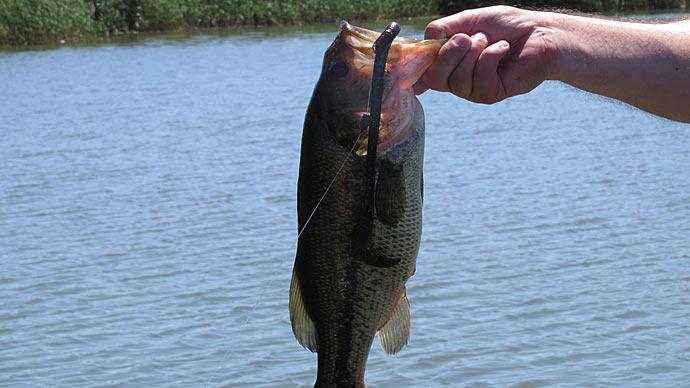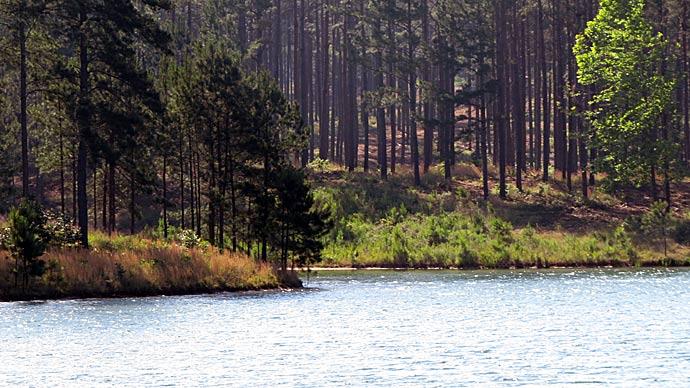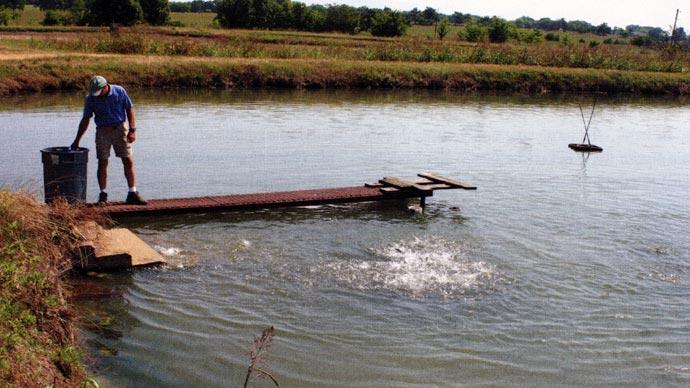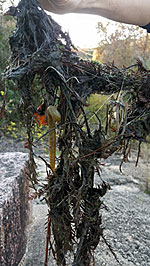
I’ve noticed that every year I seem to catch more and more fishing line during my outings. As a matter of fact, I sometimes catch more fishing line than bass! Catching fishing line can cause any angler frustration and disgust, but how many of you take the time to collect it and dispose of it properly?
In December 2015 I was out of town working in Austin, Texas. I always take a travel rod just in case I have any extra time to wet a line. There are a few spots I have been to before so I went back knowing I had a good chance to catch some fish. Within minutes of my first cast I was hung up and bringing in a big ball of fishing line. I brought the tangled mess onto shore and realized I wasn’t the first person to get hung up in it. I found multiple lures in that mess; a chatterbait, two rooster tails, a Texas-rigged worm, a fly and some random lead weights.
While picking through the tangled ball of line I noticed more on the ground. I reached down to pick it up and quickly realized much more line in the surrounding area. Within 10 minutes I had accumulated a huge mass of fishing line. This made me aware this is a much bigger problem than I imagined.
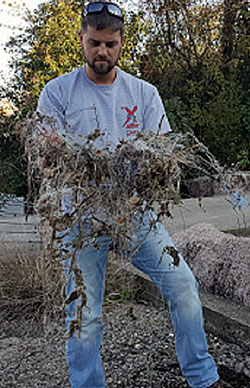
Fishing line, when not disposed of properly, can cause a number of problems to the surrounding environment and wildlife. The most known impact is its effect on animals, birds, turtles and fish. Commonly birds will get tangled into the line, become immobile, and eventually starve to death. I’ve had the opportunity to free birds from fishing line on more than one occasion. It can also cause problems with your boat. When fishing line gets caught in your prop it can work its way into the prop shaft seal and let water into the lower unit oil.
Unfortunately, the problem doesn’t stop when fishing line reaches the trash can either. Most of the trash eventually makes it to a land fill where it has the same effects on animals that scavenge there. Recycling the line is the safest way to dispose of it. There might be a local recycling program near you for this but the best way is through Berkley Pure Fishing Co. Berkley melts the line down into raw plastic material that can be made into new plastic products which includes spools for line, fish habitats, and even tackle boxes. Although Berkley recycles old fishing line they do not use the recycled line in their new fishing line products.
There are many things you can do to keep fishing line out of the environment. The easiest way is to recover as much line as possible. When you break off or if you snag someone else’s line, don’t throw it back into the water, keep an area in your boat for trash and line you pick up on your fishing trips. Also when changing out line on your reels, take it to a known line recycling bin, send it to Berkley, or just keep it until you find the right place to dispose/recycle it. If you want to do more, you can always volunteer by joining a group to clean up trash from our waterways or create your own event. Any action is a step in the right direction and can make a huge difference!
Spending time outdoors fishing is something we all enjoy. For some, it is our weekend escape. For others, it is part of our everyday life. We can keep our land and waterways clean and safe for many generations to come if we all do our part. Thanks for taking the time to read this article. Please remember to pass this message on to others.

Casey Hay is a 9-year tournament angler and bass fishing enthusiast who shares his knowledge, information and passion for bass fishing with others.


